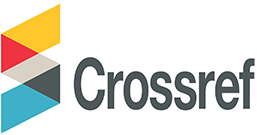A Review of the Chinese School of International Relations: Moral Realism
DOI:
https://doi.org/10.69760/aghel.0250040005Keywords:
Classical economics, conventional economics, neoclassical economics, marginalism, history of economicsAbstract
How was the term "neoclassical economics" introduced to economics and what thoughts does it imply? Is the current use of this term consistent with the initial efforts of its founders?
These questions are among the categories that always occupy the minds of economic scholars. Neoclassical economics was first introduced to economics by Veblen, and it referred to the marginalist thoughts that prevailed in the last decades of the nineteenth and early twentieth centuries.
In order to escape from the classical theory of objective value, marginalists resorted to subjective preferences for determining values, hoping that by abandoning objective value, they could establish economics on a more scientific basis.
Although these efforts were initially considered good advances, after a while they became so abstract that they seemed to be anything but a theory about human behavior. In this article, we will take a brief look at the scientific life of neoclassical economics to show how this intellectual tradition was formed, what its most important features were, and what it became over time. We will also show that, contrary to existing perceptions, the early thinkers of this intellectual tradition did not have an anti-historical and anti-institutional outlook.
References
Tafazzoli, Fereydoun (2009). History of Economic Thought: From Plato to the Modern Period, Ney Publishing, 8th edition, Tehran. For access: https://tinyurl.com/bdmra5te
Robbins, Lionel (2005). History of Economic Thought; Translated by Dr. Gholamreza Azad (Armaki), Ney Publishing. For access: https://agahbookshop.com/p-8270--.aspx
Qadiri Asli, Baqer (1969). The History of Economic Thought: From Plato to Keynes, Tehran University Press. For access: https://sohalibrary.com/item/view/2421780
Arena, R. & Michel Quéré (2003). The Economics of Alfred Marshall: Revisiting Marshall's
Legacy . Palgrave Macmillan.
Arnesperger, C. & Y. Varoufakis, (2005). What is Neoclassical Economics? The Three Axioms Responsible for its Theoretical Oeuvre, Practical Irrelevance and, Thus , Discursive Power. http://uadphil.econ.uoa.gr/UA/files/500490756..pdf
Blaug, M. (1985). Economic Theory in Retrospect . Cambridge: Cambridge University Press.
Blaug, M. (1986). Great Economists before Keynes . Cambridge University Press.
Bowles, Samuel, (2004). Microeconomics: behavior, institutions, and evolution , Princeton University Press.
Brue, S. & R. Grant (2007). The History of Economic Thought . Thomson.
Campus, A. (1988). Marginalist Economics, in J. Eatwell et al . The New Palgrave: a Dictionary of Economics, the Macmillan Press Limited.
Friedman, Milton (1953). Essays in Positive Economics . The Univrersity of Chicago Press.
Ger rard, B. (1991). “Keynes’s General Theory: Interpreting the Interpretations”. Economic Journal . (2), pp: 27-687 ا
Hamilton, David (1987). “Institutional Economics and Consumption,” Journal of Economic Issues , XXI (4). pp: 1531-1553 ا .
Harcourt, Geoffrey C.( 1987). “ Theoretical Methods and Unfinished Business .” In David Reese, ed., The Legacy of Keynes, 1 -22 ا .
Hodgson, G. M. (1993). "The Mecca of Alfred Marshall” The Economic Journal , 103(417), pp: 406-415 ا .
Hodgson, G. M. (2000), "What is the Essence of Institutional Economics?” Journal of Economic Issues , XXXIV (2).
Hodgson, Geoffrey M. (2004). The Evolution of Institutional Economics; Agency, Structure and Darwinism in American Institutionalism , Routledge.
Jha, M. (1973). The Age of Marshall: Aspects of Birithish Economic Thought : 2d ed. London: Frank cass. pp: 1890-1915 ا .
Kad ish, A. (1989). Historians, Economists, and Economic History , London: Routledge.
Kru gman, P. (1998). Development, Geography, and Economic Theory . The MIT Press.
Lawson, Tony (1997). Economics and Reality . Routledge.
Lawson, Tony (2003). Reorienting Economics . Routledge.
Maloney, J. (1985). Marshall, Orthodoxy, and the Professionalization of Economics . Cambridge: Cambridge University Press.
Mantel R., (1974). ‘On the Characterization of Aggregate Excess Demand’, Journal of Economic Theory , 7, pp: 348-353 ا .
Niehans, J. (1990). A History of Economic Theory: Classic Contributions: 19201930-” . In Sidney Weintraub, ed., Modern Economic Thought, 7-21. University of Pennsylvania ا Press.
O, Brien, D. P. (1981). “ A. Marshall, 1842-1924 ا ”. In D. P. O, Brien and J. R. Presley, eds . Pioneers of Modern Economic in Britain, 36-71 ا . Totowa, NJ: Barnes & Noble.
Radzicki, Michael J. (2003). "Mr. Hamilton, Mr. Forrester, and A Foundation for Evolutionary Economics", Journal of Economic Issues , XXXVII (1).
Rima, Ingrid H. (1977). “ Neoclassicism and Dissent: 1890 - 1930 ا . ” In Sidney Weintraub, ed., Modern Economic Thought, 721-. Philadelphia: University of Pennsylvania Press.
Screpanti E. & S. Zamagni, (2005). An Outline of The History of Economic Thought , Oxford University Press.
Sonnenschein, H. (1973). “Do Walras’ Identity and Continuity Characterize the Class of Community Excess Demand Functions?”. Journal of Economic Theory , 6, pp: 345-354
Sonnenschein, H. (1974). ‘Market Excess Demand Functions’, Econometrica , 40, pp: 549-563
Stanfield, J. R. (1999). “The Scope, Method, and Significance of Original Institutional Economics”, Journal of Economic Issues , XXXIII (2).
Stigler, G. J. (1973). “ The Adoption of The Marginal Utility Theory ”. In R. D. Collison Black et al. eds., The Marginal Revolution in Economics, 305-320 ا . Durham: Duke university Press.
Todaro, Michael P. & Stephen C. Smith, (2012). Economic Development . Eleventh Edition.
Veblen, Thorstein (1898). "Why is Economics not an Evolutionary Science?". The Quarterly Journal of Economics , 12(4), pp: 373-397 ا .
Veblen, Thorstein (1909). "The Limitation of Marginal Utility". The Journal of Political Economy , 17(9), pp: 620-636 ا .
Walras, L. (1900). Preface to 4th ed. of the Elements . Reprinted in Elements of Pure Economics, ed. W. Jaffe, London: Allen & Unwin, 1954.
White. H. (1973). Metahistory: The Historical Imagination in Nineteenth-Century Europe . Baltimore: Johns Hopkins University Press.
White, H. (1987). The Content of the Form: Narrative Discourses and Historical Representation . Baltimore: Johns Hopkins University Press.
Yonay, Y. P. (1998). The Struggle over the Soul of Economics: Institutionalist and Neoclassical Economists in America between the Wars . Princeton University Press.
Downloads
Published
Issue
Section
License
Copyright (c) 2025 Acta Globalis Humanitatis et Linguarum

This work is licensed under a Creative Commons Attribution-NonCommercial 4.0 International License.







